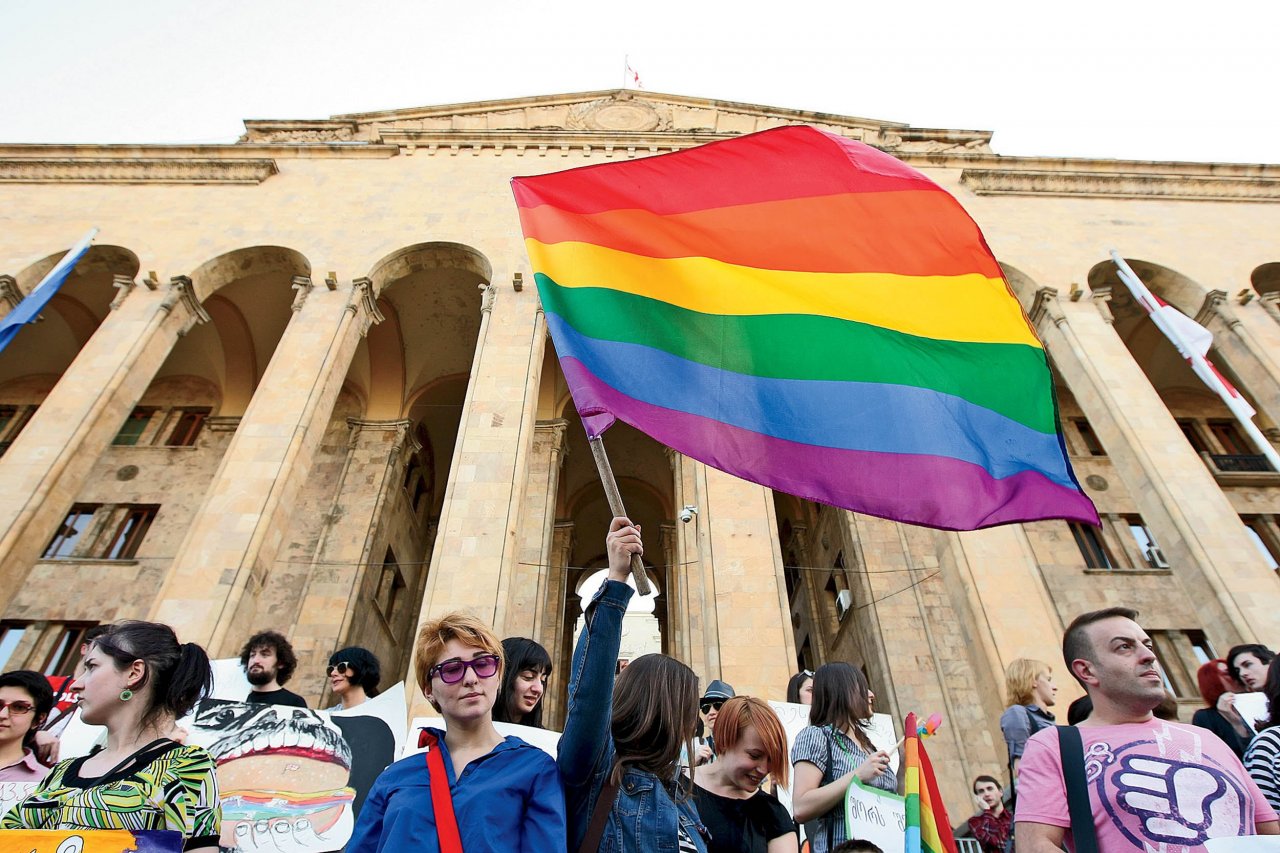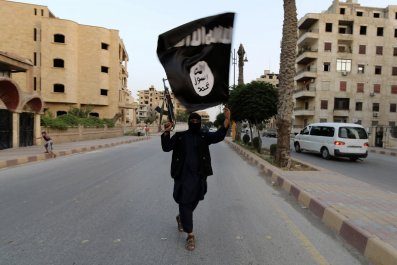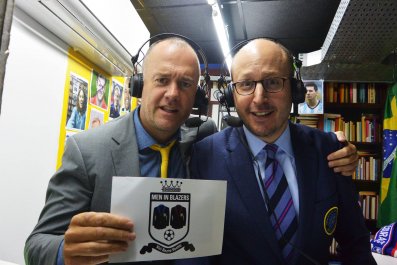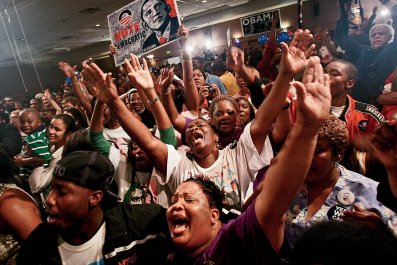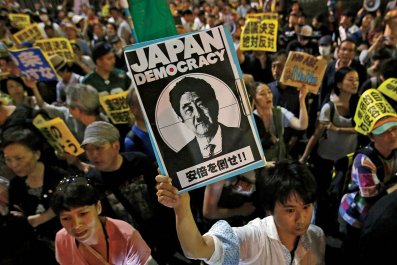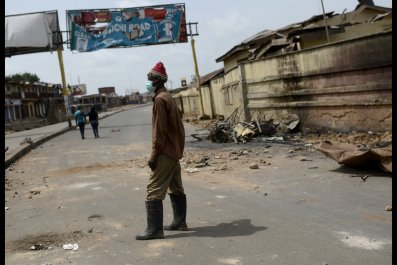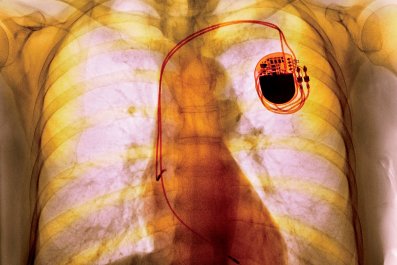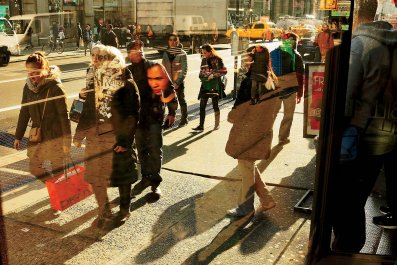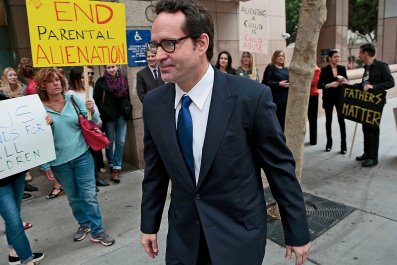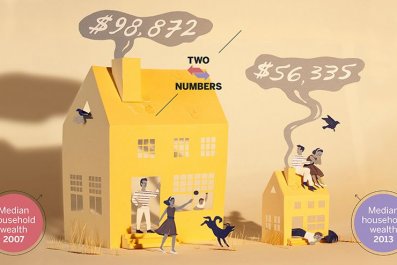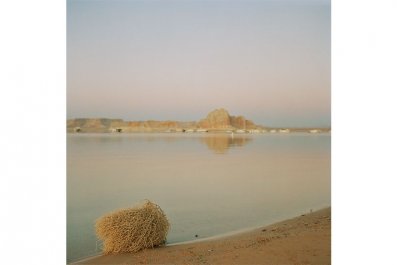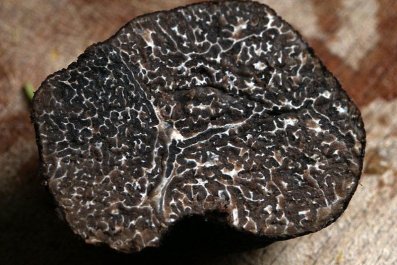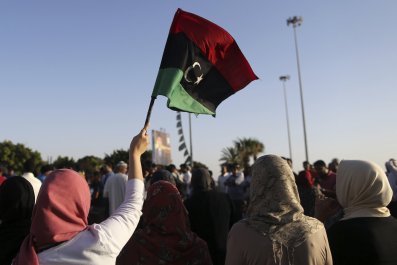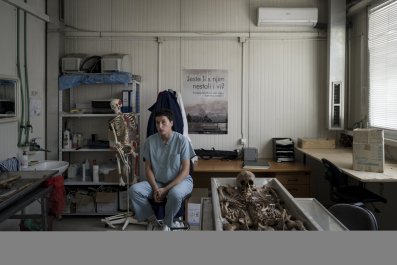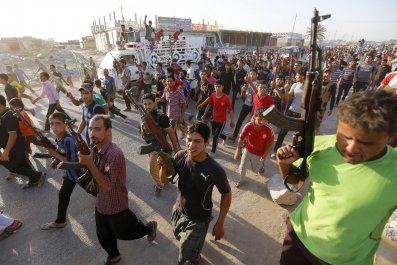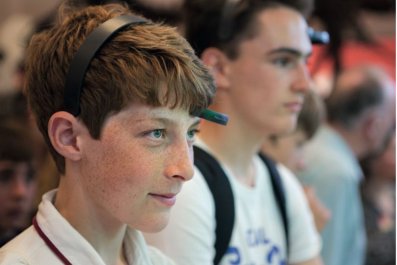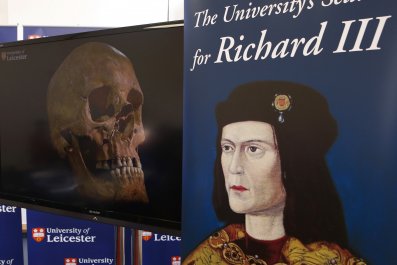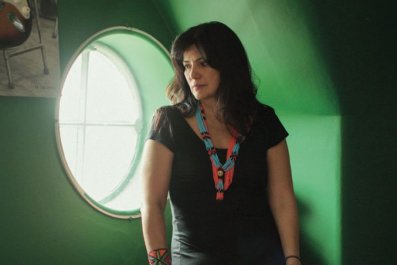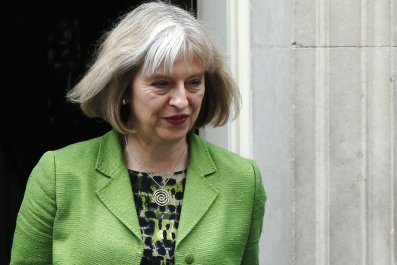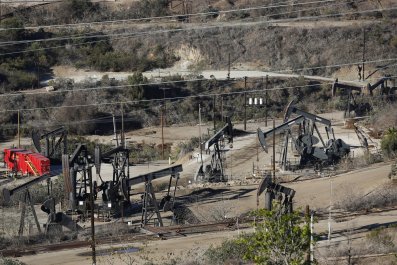The Georgian town of Gori is best known as the birthplace of Joseph Stalin. But in the days running up to May 17, this drab ex-Soviet backwater achieved a different kind of notoriety, and a splash of color, when a handful of flamboyantly dressed men sporting wigs, makeup and trashy women's clothes gathered to protest their exclusion from a TV panel show.
They said they were gay activists celebrating the International Day Against Homophobia (IDAHO). The Georgian press gleefully described them as "transsexual sex workers," but the protesters insisted they represented Georgia's embattled lesbian, gay, bisexual and transgender (LGBT) community. A rival group, Identoba, Georgia's main LGBT rights organization, was fraudulent and only in it for the money it received from supporters in the West, the protesters said, and they vowed to hold their own gay pride march to mark the international day of gay solidarity.
Impoverished Gori is not known for its transsexual sex workers, and Identoba had already announced it had no intention of holding public demonstrations on May 17 after the events surrounding IDAHO last year, when a mob tens of thousands strong and led by priests rampaged through the center of Georgia's capital, Tbilisi, and violently disrupted a tiny anti-homophobia rally. In spite of video recordings showing priests inciting the crowd and hundreds of instances of property being damaged, not a single person was prosecuted. Identoba decided that, because the Georgian police could not or would not protect people's right to freedom of expression and assembly, it would be best to call on supporters to stay home for IDAHO 2014.
Then events took a strange turn. On May 17, a phone recording that became public disclosed that the leader of the protesters in Gori said he had been hired by the Eurasian Institute, a new, radically anti-Western organization dedicated to returning Georgia, which became independent from the former Soviet Union in 1991, to the Russian sphere of influence. The leader of the supposed LGBT activists said he had been paid to stage a gay pride march in the hopes of provoking an anti-gay pogrom this year, thereby derailing the signing of an Association Agreement between Georgia and the European Union.
Unsurprisingly, the scheme failed. The date was appropriated by Orthodox Christians as "a day of family values" and passed peacefully, with Identoba organizing poignant "invisible actions," like leaving hundreds of empty shoes on Tbilisi's main square, where the anti-homophobia rally was attacked last year.
Meanwhile, on June 27 Georgia, along with Ukraine and Moldova, signed an Association Agreement with the European Union and thus moved one step closer to Europe, at least on paper.
The deal will bring free trade and visa liberalization, and strengthen the rule of law and human rights in Georgia in line with the EU's high Western standards. As a signatory, Georgia will now have preferential access to the world's biggest market, and soon Georgians will be able to travel with fewer restrictions.
Such an agreement would seem harmless enough, unless you are Russian President Vladimir Putin and determined to restore Russia to the world power it was under Communism. When Ukraine President Viktor Yanukovych refused to sign a similar agreement in November last year and opted instead for a deal with Moscow, he unleashed the angry protests in Kiev that toppled him. In response, Russia annexed Crimea and offered wholesale help to the Russian-speaking separatist Ukrainians in the eastern part of the country.
"This is especially dangerous here," says Koba Turmanidze, director of the Caucasus Research Resource Centers (CRRC), a Georgian polling and research organization. "There is a big lack of awareness about the EU here. People want to join it, but they don't know what exactly that means. This gives a chance to these anti-Western forces to come out and maybe increase popularity."
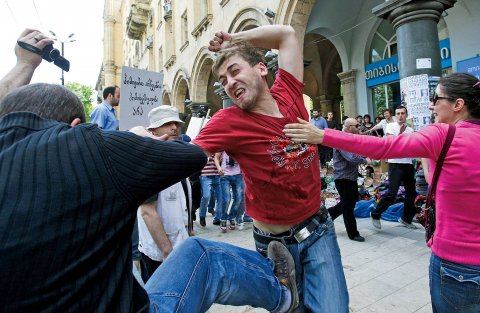
Irakli Vacharadze, the head of Identoba, puts it another way. "Putin's ideology promotes homophobia as a way to isolate countries like mine from the civilized world," he says. "The sad thing is that the groups who used to promote this were marginal. Now they are not marginal anymore."
Indeed, in Georgia's latest local elections, held just a week before the Association Agreement was signed, anti-Western parties garnered about 15 percent of the vote. A new force, the pro-Kremlin Alliance of Patriots, cleared 4 percent for the first time, qualifying it for state funding in the future.
"It is no secret who funds these guys," says Vacharadze. "They say it openly—that Georgia needs to go back to Mother Russia, needs to turn its back on the West."
But pro-Russian forces have a mountain to climb in Georgia. A CRRC poll from 2013 shows that 83 percent of Georgians, if given the chance, would vote to join the EU immediately. While the Association Agreement is not an automatic path to EU membership, Georgian leaders want to join as soon as possible. When last month European Commission President José Manuel Barroso said the EU had doubled in size to 28 members over the past decade, Georgian Prime Minister Irakli Garibashvili quipped, "We'll do everything to be No. 29."
But the road to Georgia becoming a full EU member will not be easy. "Public opinion is behind EU membership," says Giga Bokeria, a former secretary of the Georgian National Security Council, "but there is a danger of Russia capitalizing on that moment of frustration after the agreement has been signed. A few months will pass, and the economic situation won't get much better. Then the Kremlin might decide to activate the leverage they have been building up."
For now, that pressure on the Georgian government has been confined to mobilizing homophobes and nationalists. But Russia has other powerful tools at its disposal. After the war over the separatist province of South Ossetia in 2008, Russian troops now occupy 20 percent of Georgian territory.
According to Bokeria, the "pragmatic pro-Russian" argument is the most dangerous to Georgian independence. "The pragmatist argument says, 'Look at Ukraine. Putin does whatever he wants. Eastern Ukraine continues to bleed, but it's business as usual with Putin for the West. We are under threat. No one is coming to help. So we should make a deal with Putin. He's a pragmatic guy.'" he says.
There is also what Bokeria calls "the values argument." Russia can seek to capitalize on Georgia's traditionalist, Orthodox Christian mores. CRRC data show about 90 percent of Georgians believe homosexuality is "never justified." For Identoba's Vacharadze, this is the crux of the matter. "So 80 percent of people say they want to join Europe. So what? There has never been a real European project in Georgia. It's been labeled as such, but it's been elitist, remote, seen as something that has been imposed," he says.
As Vacharadze looks out over central Tbilisi from his office, a massive Alliance for Patriots election billboard can be seen through the rainbow-flag blinds, a reminder of the resources available to this new pro-Kremlin party. Although the signing of the Association Agreement has been heralded in Tbilisi as a huge step closer to Europe, Vacharadze sees nothing to celebrate until Georgia adopts the European values of tolerance, respect and equality.
"The real European project," he says, pointing to the billboard, "will be when I can say to those people that I am also Georgian, and I have a right to live and thrive."



